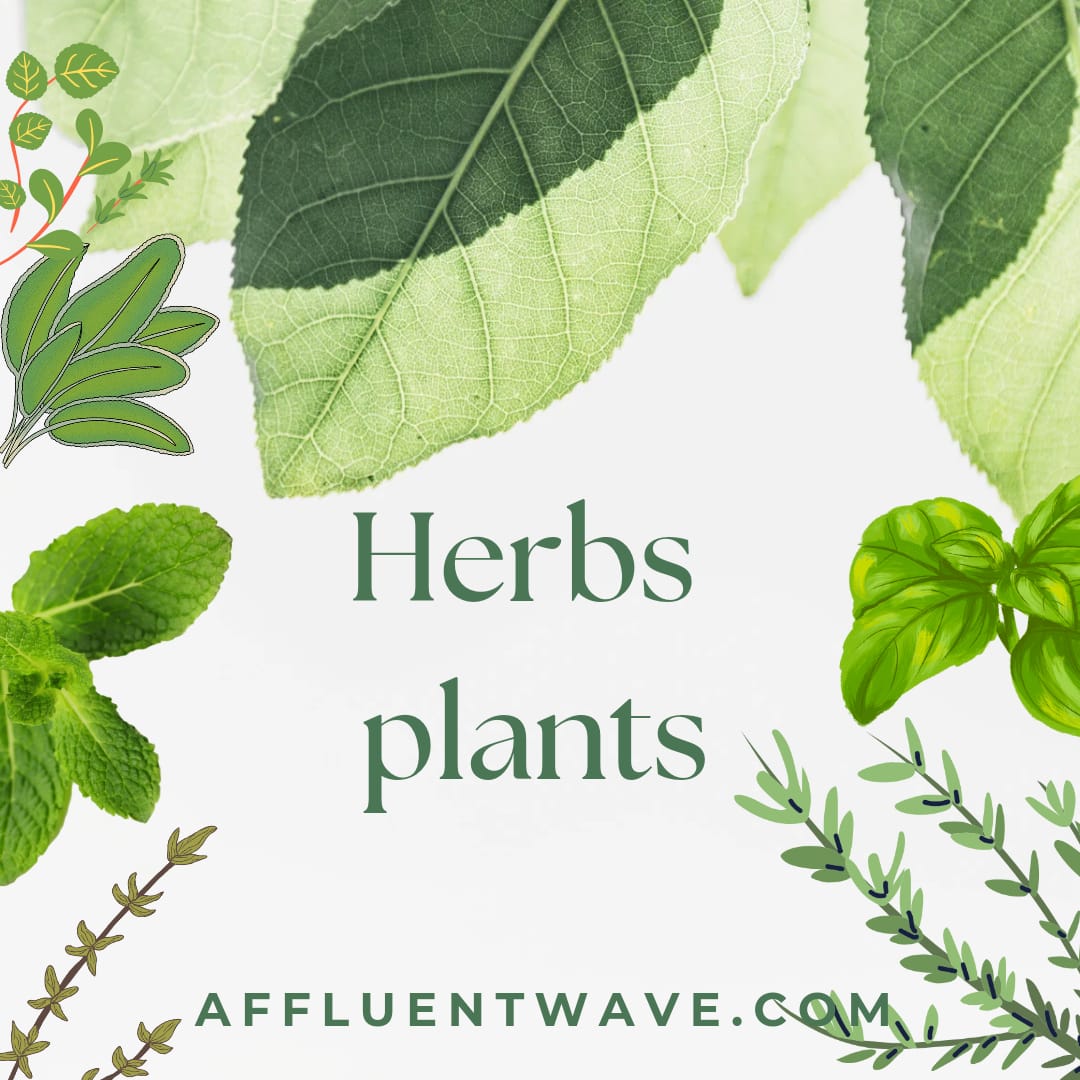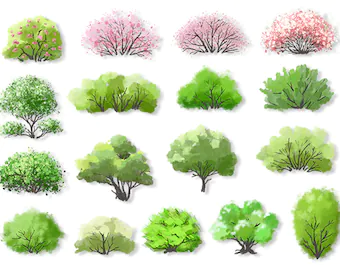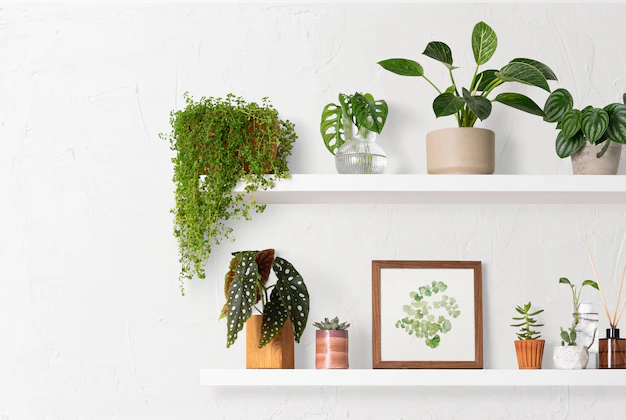Top 10 Herbs plants to Grow for a Natural Health Boost
Discover the enchanting world of herbs plants! 🌿🌱 Enhance your well-being with these natural wonders. Learn how to grow and use them in your garden, creating a bountiful herb garden that adds flavor to your dishes and boosts your health! 🌿🍃 #HerbsPlants #NaturalHealthBoost #GardeningTips
- Introduction
- The Importance of Growing Herbs in Your Garden
- Enhancing Your Health Naturally
- Cost-Effectiveness and Convenience
- Top 10 Herbs to Grow for a Natural Health Boost
- Basil: A Versatile and Flavorful Herb
- Mint: Soothing and Refreshing
- Rosemary: Aromatic and Medicinal
- Thyme: Culinary and Medicinal Uses
- Lavender: Relaxing and Calming
- Sage: Aromatic and Medicinal Properties
- Oregano: Flavorful and Medicinal Benefits
- Chives: Mild Onion Flavor with Health Perks
- Parsley: Nutrient-Rich and Fresh
- Cilantro/Coriander: Flavorful and Detoxifying
- Tips for Growing Herbs Successfully
- Choosing the Right Location
- Providing Adequate Sunlight and Watering
- Using Quality Soil and Fertilizers
- Pruning and Harvesting Techniques
- Companion Planting for Herb Gardens
- How to Use and Store Your Homegrown Herbs
- Fresh Culinary Applications
- Drying and Preserving Techniques
- Creating Herbal Teas and Infusions
- Homemade Herbal Remedies
- Conclusion
- FAQs
Introduction
Gardening is a gratifying and rewarding experience, especially when you can cultivate plants that offer numerous health benefits. If you are looking to enhance your well-being naturally, growing herbs in your garden is a fantastic idea. Herbs not only add flavor to your culinary creations but also possess medicinal properties that promote overall health. In this article, we will explore the top 10 herbs you must grow in your garden for a natural health boost. Get ready to elevate your garden to a whole new level of goodness!
The Importance of Growing Herbs in Your Garden
Enhancing Your Health Naturally
When you grow herbs in your garden, you have access to fresh, organic, and chemical-free goodness right at your fingertips. Herbs are powerhouses of essential vitamins, minerals, and antioxidants that can support your immune system, improve digestion, and boost your energy levels. Adding these natural wonders to your diet can contribute to a healthier and more vibrant lifestyle.
Cost-Effectiveness and Convenience
Having your herb garden is not only a cost-effective solution but also a convenient one. Instead of purchasing expensive herbs from the grocery store, you can pluck the required amount directly from your garden. It’s a sustainable approach that reduces waste and saves you money in the long run.
The Importance of Growing Herbs in Your Garden
1.
Basil: A Versatile and Flavorful Herb
Basil is a beloved herb known for its sweet aroma and distinctive flavor. It is rich in antioxidants and anti-inflammatory compounds that can combat oxidative stress and promote heart health. Basil’s adaptability makes it perfect for various dishes, from salads to sauces.
2.
Mint: Soothing and Refreshing
Mint is a refreshing herb that can soothe digestive issues, alleviate headaches, and improve mental focus. Its invigorating aroma makes it a popular choice for herbal teas and beverages, making it a must-have in your herb garden.
3.
Rosemary: Aromatic and Medicinal
Rosemary’s woody fragrance and robust taste make it a favorite herb in culinary endeavors. Apart from enhancing the taste of your dishes, rosemary has medicinal properties that aid in improving memory and concentration.
4.
Thyme: Culinary and Medicinal Uses
Thyme is a versatile herb that adds depth to various dishes. It contains essential oils with antifungal and antibacterial properties, making it a beneficial herb for supporting respiratory health.
5.
Lavender: Relaxing and Calming
Known for its calming properties, lavender is an excellent herb for reducing stress and promoting relaxation. You can use dried lavender flowers to make aromatic sachets or soothing herbal teas.
6.
Sage: Aromatic and Medicinal Properties
Sage has a warm and earthy flavor that complements a wide range of dishes. It has potent antioxidant properties and may help alleviate inflammation and support oral health.
7.
Oregano: Flavorful and Medicinal Benefits
Oregano is a popular herb in Mediterranean cuisine, known for its robust flavor. It is rich in vitamins and minerals and possesses antimicrobial properties that may aid in supporting the immune system.
8.
Chives: Mild Onion Flavor with Health Perks
Chives have a mild onion flavor and are packed with essential nutrients like vitamin K and vitamin C. They can add a burst of flavor to salads, soups, and other dishes.
9.
Parsley: Nutrient-Rich and Fresh
Parsley is not only a garnish but a nutritional powerhouse. Rich in vitamins A, C, and K, it supports bone health, boosts the immune system, and freshens your breath.
10.
Cilantro/Coriander: Flavorful and Detoxifying
Cilantro, also known as coriander in some regions, has a distinct flavor and is commonly used in Asian and Mexican cuisines. It may aid in detoxification and support digestive health.
Tips for Growing Herbs Successfully
Growing herbs successfully requires some care and attention. Here are some tips to ensure a thriving herb garden:
Choosing the Right Location
Select a spot in your garden that receives ample sunlight and has good drainage. Most spices flourish in full daylight, so pick an area that gets no less than 6-8 hours of direct daylight every day.
Providing Adequate Sunlight and Watering
Water your herbs regularly, making sure not to overwater them. Most spices incline toward soil that is somewhat wet yet not waterlogged. Screen the dampness level and change your watering plan in like manner.
Using Quality Soil and Fertilizers
Use well-draining and nutrient-rich soil to give your herbs a healthy foundation. Organic compost or natural fertilizers can help provide essential nutrients to the plants.
Pruning and Harvesting Techniques
Regularly prune your herbs to encourage growth and prevent them from becoming leggy. Harvest the herbs when they are at their peak, usually in the morning after the dew has dried but before the sun gets too hot.
Companion Planting for Herb Gardens
Consider companion planting to create a harmonious herb garden. Some herbs have natural pest-repelling properties that can protect neighboring plants.
How to Use and Store Your Homegrown Herbs
Fresh Culinary Applications
Drying and Preserving Techniques
Creating Herbal Teas and Infusions
Homemade Herbal Remedies
RELATED ARTICLES
Conclusion
In conclusion, growing herbs in your garden not only adds flavor to your dishes but also provides numerous health benefits. The top 10 herbs mentioned in this article can elevate your culinary experience and support your overall well-being naturally. So, roll up your sleeves, get your hands dirty, and start your herb garden today!
Can I grow herbs indoors?
Yes, you can grow herbs indoors! Many herbs can thrive in containers placed near a sunny window. Just ensure they receive enough sunlight and proper care, and you’ll have fresh herbs right at your fingertips.
What are the easiest herbs to grow for beginners?
For beginners, some easy-to-grow herbs include mint, basil, chives, and parsley. These herbs are resilient and forgiving, making them perfect for those new to gardening.
How often should I water my herb garden?
The frequency of watering depends on various factors like the type of herbs, weather conditions, and soil moisture. As a general guideline, water your herbs when the top inch of the soil feels dry to the touch.
Are there any herbs that repel pests?
Yes, some herbs have natural pest-repelling properties. For example, rosemary and mint can help deter certain pests like mosquitoes and flies, making them beneficial additions to your garden.
Can I grow herbs without using pesticides?
Absolutely! One of the advantages of growing your herbs is that you can control what goes into their care. Utilize natural methods like companion planting, neem oil, or introducing beneficial insects to keep pests at bay without harmful pesticides.
What are the health benefits of basil?
Basil is plentiful in cell reinforcements, nutrients An and K, and fundamental minerals like iron and calcium. It may promote cardiovascular health, reduce inflammation, and support the immune system.
How can I use lavender from my herb garden?
Lavender has a delightful fragrance and can be used in various ways. You can dry the flowers to create potpourri or sachets, make soothing lavender-infused oils, or brew a calming herbal tea.
What are the culinary uses of thyme?
Thyme adds a delightful flavor to many dishes, such as roasted meats, soups, stews, and sauces. Its aromatic qualities make it a popular herb in Mediterranean cuisine.
How do I preserve excess herbs from my garden?
You can preserve excess herbs by drying them. Hang bundles of herbs upside down in a cool, well-ventilated area until fully dried, then store them in airtight containers.
What are a few natural cures I can make at home?
You can create various herbal remedies using your homegrown herbs. For instance, infuse thyme and honey for a soothing cough syrup, or make a calming tea with chamomile and lavender to relax before bedtime.














